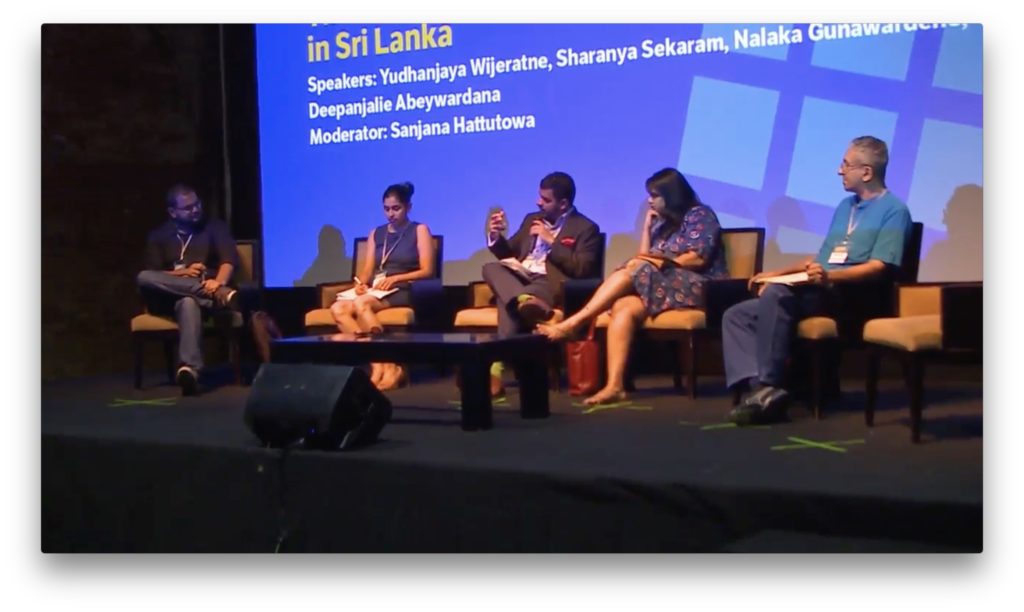Even before the end of the war in 2009, but certainly after it, conversations on society, politics, culture, religion and other vital matters are moving online to digital spaces, or are increasingly influenced by perspectives and content on the web. There is a demographic dividend at play – first, second and even third time voters in Sri Lanka are those who are also the most active on social media platforms. The metrics of all this are obvious – the number of individuals on and using social media, including those using it to promote their ideas and opinions to more than just friends and family. How politicians and political parties are using social media around their election campaigns, from voter mobilisation to the discussion of key policies leading up to the election. How propaganda, and push-back to it, is now increasingly digital. Civil society is moving to social media, with advocacy and activism in the physical world now inextricably entwined with digital equivalents. Religious institutions and priests use social media, for various ends. Government is on social media to broadcast information, alert and sometimes to engage citizens. Mainstream media has long since discovered that conversations are as, if not more important, than subscriptions. Wherever there is conversation, there are opportunities to engage, promote, intervene and also build trust.
At the same time, there are those not included in, or have access to these conversations due to gender, class, economic status, language, sexuality, geographic location, connectivity and other barriers. How and if they are able to participate ultimately determines whether the conversations, such as they exist online, are echo chambers or spaces for genuine engagement with diverse opinions. There are also challenges around violent pushback of differing opinions, and the chilling effect of cyber-bullying that results in the eventual disengagement of individuals under attack, those who know them and those like them.
How has mainstream media encouraged conversations around key issues in Sri Lanka, post-war? Do millennials find the issues they care about reflected in conversations online or offline, and if so, where? What do traditional journalists think of new platforms and spaces for conversations, and what will they do to engage, embrace, adapt or adopt? What are the most exciting new voices, trends, platforms and conversations that will undergird Sri Lanka’s democratic potential in the years to come? What are the key opportunities and main risks around how the conversational landscape exists today in a country post-war, but not yet post-conflict?
Panel discussion recorded at the Global Voices Summit, 2nd December 2017, held at Trace City, Colombo, Sri Lanka. There’s also an excellent summary of the session by Ethan Zuckerman on the Global Voices Summit page.
Moderator: Sanjana Hattotuwa
Panellists: Yudhanjaya Wijeratne, Sharanya Sekaram, Nalaka Gunawardene and Deepanjalie Abeywardena
